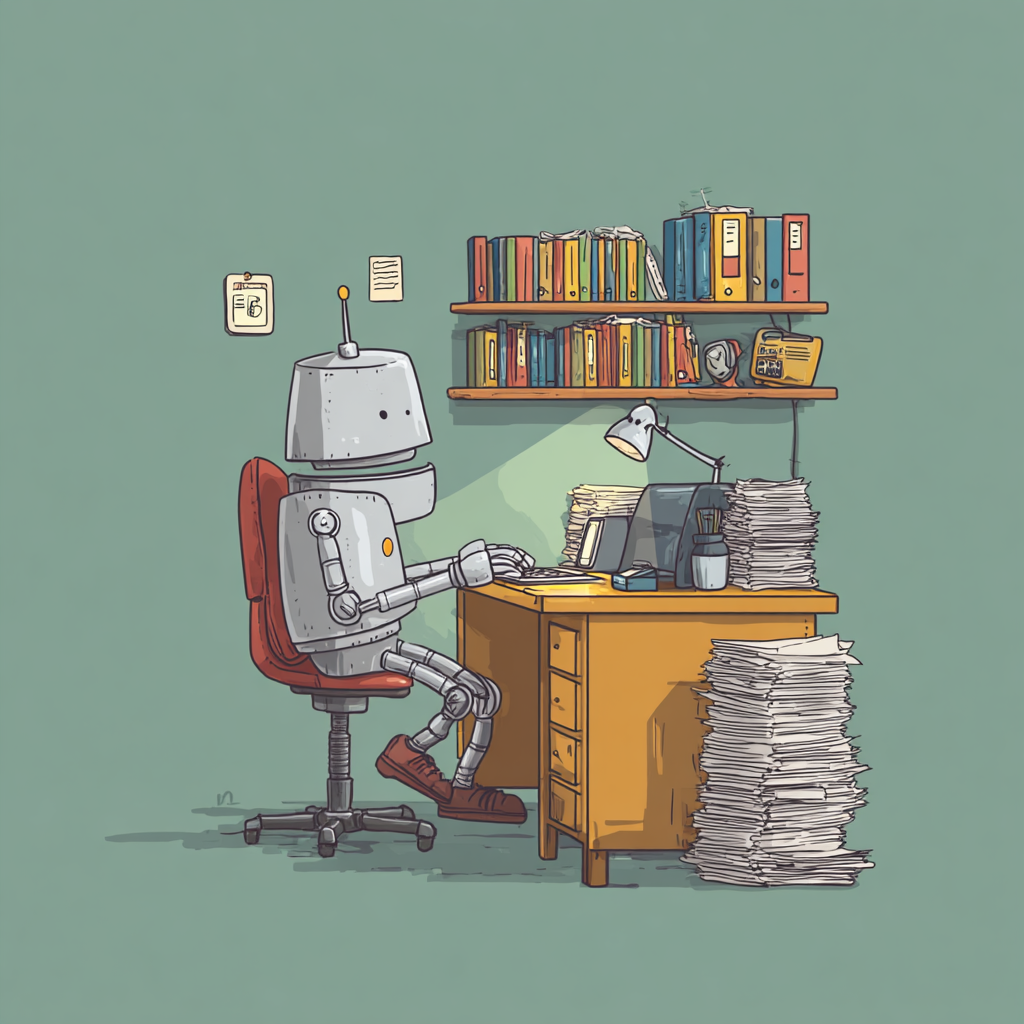AI Is Coming for Your Job
Almost daily, the world takes another step toward artificial general intelligence. The most powerful AI models can do an astonishing array of tasks, from writing detailed reports to creating videos on demand. Your company’s CEO is comparison shopping right now. You cost many thousands of dollars plus healthcare, vacation days, and that annoying habit of having opinions. AI costs less than your annual coffee budget and never complains about needing a day off.
Historically, technological revolutions have eliminated jobs but created new ones in their place, often throughout several generations. A century ago, about 40 percent of US jobs were in agriculture; today, it is less than 2 percent. In the mid-20th century, around 40 percent of the workforce held blue-collar jobs in manufacturing, construction, installation, maintenance, and repair. That figure has since dropped to 20 percent. As technology advances, the nature of work continues to shift. With AI, it may transform not only the types of jobs available but also the very definition of labor itself.
Enter the alarmist, Chicken Little-esque headlines warning of a white collar bloodbath, such as the one for this blog. Every day, I field questions from clients who are concerned about the longevity of their careers. These same people are also wondering how to advise their college-age children. Do they take on debt to earn a degree only to find that the workforce is now an army of machines?
Economists, sociologists, and other experts and scholars agree: AI will likely eliminate jobs. However, as AI evolves, so-called “AI-adjacent” jobs will become increasingly mainstream. Additionally, the safest job in America right now might be the one nobody wants—middle management. Why? Someone needs to translate between AI systems and humans who still think “the cloud” is something tracked by weather radar. Middle managers are predicted to survive the AI revolution.
Some predict that AI might leave us humans to do only scut work. But artificial intelligence is just that—artificial. It is nothing without human intervention. Would you watch a movie, read a book, or see a play that was created and executed by AI? You might, but you would know that something is off. As I’ve discussed in previous blogs, language is one of the most powerful tools at our disposal. AI cannot effectively utilize metaphors, symbolism, foreshadowing, allegory, or any other linguistic devices. While AI can assume jobs that involve completing rote tasks, it has not yet evolved to the point of competing with the complexities of the human mind. (Those of us who remember James Cameron’s Terminator movies have a unique understanding of the limitations of non-human intelligence!)
Please be assured that I am not suggesting that anyone should ignore AI and its potential threat to the future of work. Every CEO is looking to AI to boost revenue, trim expenses, and optimize ROI, so you need to be prepared. Investigate jobs that leverage AI, are AI-adjacent, or are within the nascent AI industry.
Businesses exist to solve problems, problems that people have. People purchase solutions to those problems. Without human buyers, companies would cease to exist. Regardless of the scaremongering headlines or the doomsday chyrons on your screen, AI cannot learn emotional intelligence or adaptability. And that is where you, the human, come in.
So yes, learn the tools. Stay current. Adapt. But do not panic. The future of work will change—but it will still belong to those who bring creativity, judgment, empathy, and vision. AI may be a powerful tool, but it is still just that—a tool. The edge will always belong to those who know how to use it wisely.


